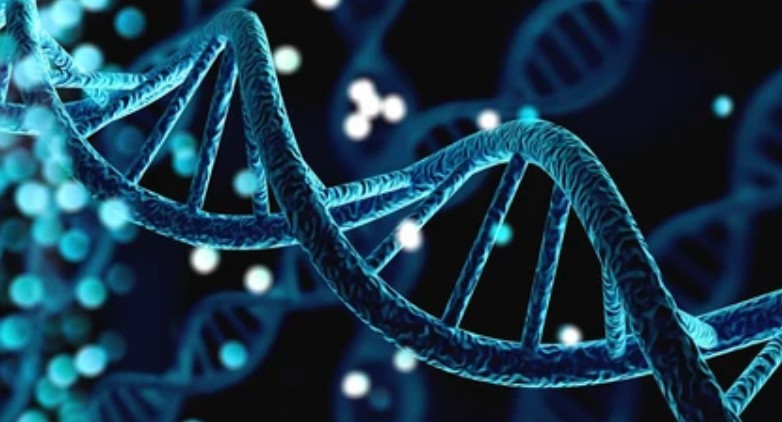-
- Pathogenic Mechanism of Stroke
- Exploration of the Role of Differential Targets in Stroke
- Exploration of the Role of Glutamate in Stroke
- Exploration of the Role of Noncoding RNAs in Stroke
- Exploration of the Role of NMDAR in Stroke
- Exploration of the Role of PSD-95 in Stroke
- Exploration of the Role of Tau in Stroke
- Exploration of the Role of Heat Shock Protein 70 in Stroke
- Exploration of the Role of Notch in Stroke
- Exploration of the Role of UCHL1 in Stroke
- Exploration of the Role of Guanosine in Stroke
- Exploration of the Role of Nogo-A in Stroke
- Exploration of the Role of Nrf2 in Stroke
- Exploration of the Role of DAPK1 in Stroke
- Exploration of the Role of AMPK in Stroke
- Exploration of the Role of Caveolin-1 in Stroke
Exploration of the Role of Cell Death in Stroke- Exploration of the Role of Ferroptosis in Stroke
- Exploration of the Role of Pyroptosis in Stroke
- Exploration of the Role of Necroptosis in Stroke
- Exploration of the Role of Cell Apoptosis in Stroke
Exploration of the Role of Different Cell Types in Stroke- Exploration of the Role of Astrocytes in Stroke
- Exploration of the Role of Microglia in Stroke
- Exploration of the Role of Leukocytes in Stroke
Exploration of the Role of Other Components in Stroke- Exploration of the Role of Mitochondria in Stroke
- Exploration of the Role of Gut Microbiota in Stroke
- Exploration of the Role of Autophagy in Stroke
- Exploration of the Role of Blood Brain Barrier in Stroke
- Exploration of the Role of Exosomes in Stroke
- Exploration of the Role of Epigenetic Mechanisms in Stroke
- Animal Modeling of Stroke
- Animal Modeling of Ischemic Stroke
- Custom Four-Vessel Occlusion (4-VO) Model of Global Ischemic Stroke
- Custom Two-Vessel Occlusion (2-VO) Model of Global Ischemic Stroke
- Custom Complete Global Brain Ischemia Models
- Custom Endovascular Filament Model of Middle Cerebral Artery Occlusion (MCAO)
- Custom Middle Cerebral Artery Occlusion (MCAO) Model by Transcranial Electrocoagulation
- Custom Embolic Stroke Models
- Custom Endothelin-1 (ET-1) Induced Ischemic Stroke Model
- Custom Photothrombotic Stroke Model
Animal Modeling of Hemorrhagic Stroke- Custom Blood Injection Intracerebral Hemorrhage Animal Model
- Custom Collagenase Model of Intracerebral Hemorrhage in Animals
In Vitro Modeling of Stroke- In Vitro Modeling of Ischemic Stroke
- In Vitro Modeling of Hemorrhagic Stroke
- Drug Screening Platform ServicesDrug Efficacy Testing
- Behavioral Testing Services
- Post-Stroke Sensorimotor Function Testing Services
- Post-Stroke Motor Function Testing Services
- Post-Stroke Cognition & Mood Testing Services
- Large Animal Behavior Testing Services
- Biomarker Measurement Services for Stroke
- Quantitative Pharmacodynamic Analysis Services for Stroke
- Pharmacokinetic Testing
- Safety Evaluation Testing
- Pharmaceutic Preparation Services
Online Inquiry
Exploration of the Role of Epigenetic Mechanisms in Stroke
Epigenetics is an important branch of molecular biology, including DNA methylation, histone modification, and non-coding RNAs. Studies have found that epigenetics is involved in the pathological processes of many diseases, such as diabetes, obesity, renal pathology, and several types of cancer. The mechanism of action of ncRNAs has been explored separately, so the role of DNA methylation and histone modifications in stroke pathology is highlighted here. Ace Neuroscience provides comprehensive services to explore the role of epigenetic mechanisms in stroke.

Exploration of the Role of Histone Modifications in Stroke
The status of histone modification will affect the pathological process of various diseases, especially tumor, and immune diseases. Of these, acetylation and methylation are the most common types of histone modifications, and acetylation has also been shown to play an important role in stroke. Therefore, Ace Neuroscience provides perfect services to explore the specific mechanisms of different histone modification types during the stroke.
- The samples are processed by bottom-up, middle-down, and top-down assays for mass spectrometry analysis.
- We use protein microarray technology to detect histone modifications with high throughput.
- The status of histone modifications is determined by chromatin immunoprecipitation, western blotting, and detection of histone acetylase and deacetylase activities.
Exploration of the Role of DNA Methylation in Stroke
With the development of research, the role of DNA methylation in stroke has been paid more and more attention. Despite several studies related to the role of DNA methylation in stroke, it remains unclear. Ace Neuroscience provides comprehensive services to explore the role of DNA methylation in stroke.
- We combine DNA methylation with next-generation sequencing to build different DNA methylation sequencing platforms to meet your different sample sequencing needs.
- As an important enzyme of DNA methylation, DNA methyltransferase (DNMT) plays an important role in the pathological process of stroke. We have established in vitro and in vivo models of DNA methyltransferases with different gene function loss by gene knockout, gene mutation, and other technologies, in order to study the effects of DNA methyltransferases with different gene function loss on DNA methylation process in the pathological process of stroke.
- We combine methylomics and transcriptomic association analysis of DNA methylation to screen for key differential genes in the stroke process. In addition, we use qPCR, western blotting, ELISA, and other assays to explore the specific mechanism of key genes in stroke.
Click Exploration of the Role of Noncoding RNAs in Stroke to learn about the services of Exploration of the Role of noncoding RNAs in stroke. If you would like to learn more about our services, please feel free to contact us.
Reference- Stanzione, R., et al. Pathogenesis of ischemic stroke: Role of epigenetic mechanisms. Genes (Basel). 2020, 11(1): 12827-12843.
All of our services are intended for preclinical research use only and cannot be used to diagnose, treat or manage patients.
Ace NeuroscienceWe are committed to accelerating progress in stroke research and drug development.
Connect with usCopyright © Ace Neuroscience. All rights reserved.0Inquiry Basket